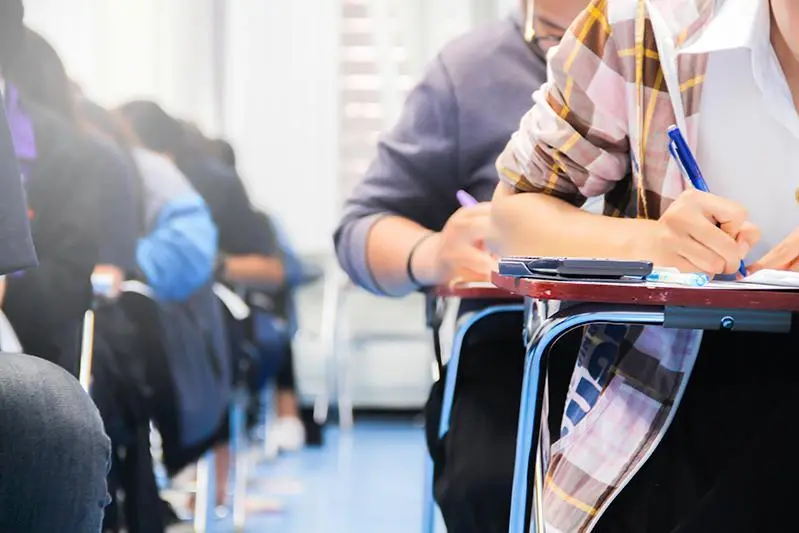PHOTO
A federal law to combat cheating in examinations stipulates fines of up to Dh200,000. The penalty is imposed on anyone other than a student who commits any of three acts before, during, or after the exams. These are: Print, publish, promote, transmit, or leak information related to questions, answers, or examination content by any means; modify answers or the grades awarded; and impersonate a student to take the exam in his/her place.
The law was among 73 federal legislations across various sectors passed last year.
“Anyone other than a student who participates or contributes as an original perpetrator or partner in causing … the commission of any of the acts stipulated (above) … with his knowledge shall be punished with the same penalty,” the law on combating cheating and disruption of the examination system states.
If convicted, the perpetrator may be ordered to do community service for up to six months — either as an added penalty or in place of the fine.
If a student is caught cheating, disciplinary procedures will be initiated. These will be in line with conduct rules and regulations in force at the Ministry of Education, educational authorities in each Emirate, and educational institutions.
The law defines cheating as “obtaining or attempting to obtain, give, or leak information related to questions, answers, or examination content by illegal means, including penetrating electronic examination systems, falsifying results, or the student possessing and using any information technology means or other illegal means in examination rooms and centres”.
The rules apply to governmental or private institutions including schools, universities and colleges.
Speaking to Khaleej Times, a veteran educator indicated how high integrity should be embedded in an institute’s value system for all stakeholders that remains uncompromisable.
Abhilasha Singh, Principal, Shining Star International said: “Teachers undergo training in the school during which the importance of academic integrity is emphasized. The same is made clear in the student handbook given to all students enrolled in the school. Further, students are encouraged to practice honesty amongst their peers through experiential learning.”
She clarified that in instances of misdemeanour, these situations are viewed not as chances to impose the harshest penalties, but rather as opportunities to educate children with compassion, guiding them toward the right path in a way that leaves a lasting impact throughout their lives.
Singh added: “But misdemeanours in the examinations are dealt with strictly. Children are made to understand that there are consequences for their actions, and they have to take responsibility for their actions. The whole school system is based on the values of honesty and integrity. Teachers have to be fair and hold high integrity which should not be compromised at any cost.”
Copyright © 2022 Khaleej Times. All Rights Reserved. Provided by SyndiGate Media Inc. (Syndigate.info).





















